With the prospect of living abroad comes many questions and anxieties, so as a magazine we hope this series will help ease any of your worries and give you a better idea of what you will be getting yourself into! As a Spanish student it was compulsory for me to move to Spain during my third year of uni, a thought that both excited me and massively increased my stress levels. I had the choice to work or study, and while the idea of a salary was very tempting, I was swayed by the notion of staying in a university atmosphere.
After a lot of research and conversations with previous students I decided on the University of Granada. The vibrant Spanish city is situated in the south east of Spain and turned out to be the Erasmus student hub of Europe, welcoming more Erasmus students than any other European city, which meant that the city was full of people in the same scary situation as me. Due to the abundance of students, my social calendar was full before I had managed to put up all my photos and fairy lights in my room. From tapas evenings, walking tours, pub crawls and language exchanges, I ended up rarely spending much time in my flat! There were many groups that led organised trips and events such as Emycet and Bestlife, which gave you the opportunity to visit new places, get to know the city better, and most importantly meet new people. For me, the most noteworthy experience was the language exchanges that happened in a bar called Entresuelo. Here people of all nationalities came to practice Spanish and other languages. It gave us a relaxed space to practice speaking and listening without the pressure of judgement or criticism, plus the cheap alcohol definitely helped add to my confidence, whilst possibly worsening my pronunciation.
While partying and socialising found themselves on top of my priority list, I also was determined to make the most of living in such a historic city. Throughout Spain’s history, the Spanish and Ottoman empire have both settled in Granada, which has led to a wonderful entanglement of both Spanish and Arabic culture and architecture. As you walk through the narrow-cobbled pathways you will find small shops full of handcrafted Arabic ceramics, artwork, trinkets and free falafel (if you know the right places to go!). ┬áMost notably however, is the breath-taking Arabic palace that stands above the city. The Alhambra was first built in 889 AD, then rebuilt during the reign of the Ottoman empire in the mid-13th century, and is now the home of some of the most incredible Islamic architecture in the world.
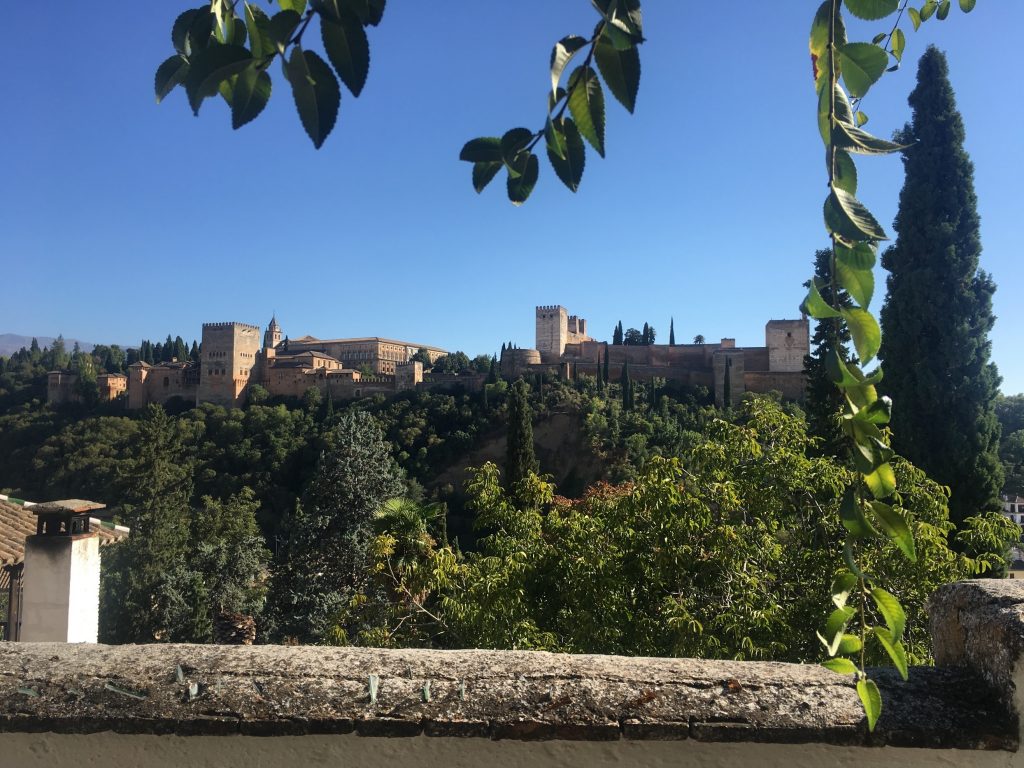
The Alhamabra from the Albaicín (Photo Credit: Alice Clifford) 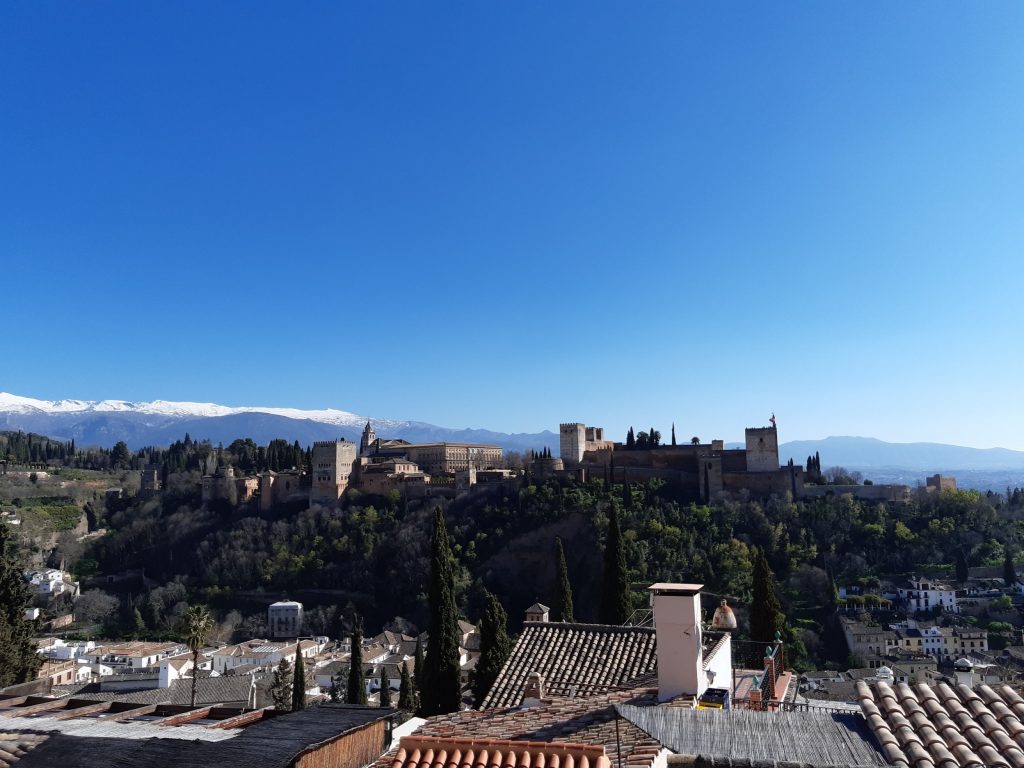
The Alhamabra from the Albaicín (Photo Credit: Alice Clifford) 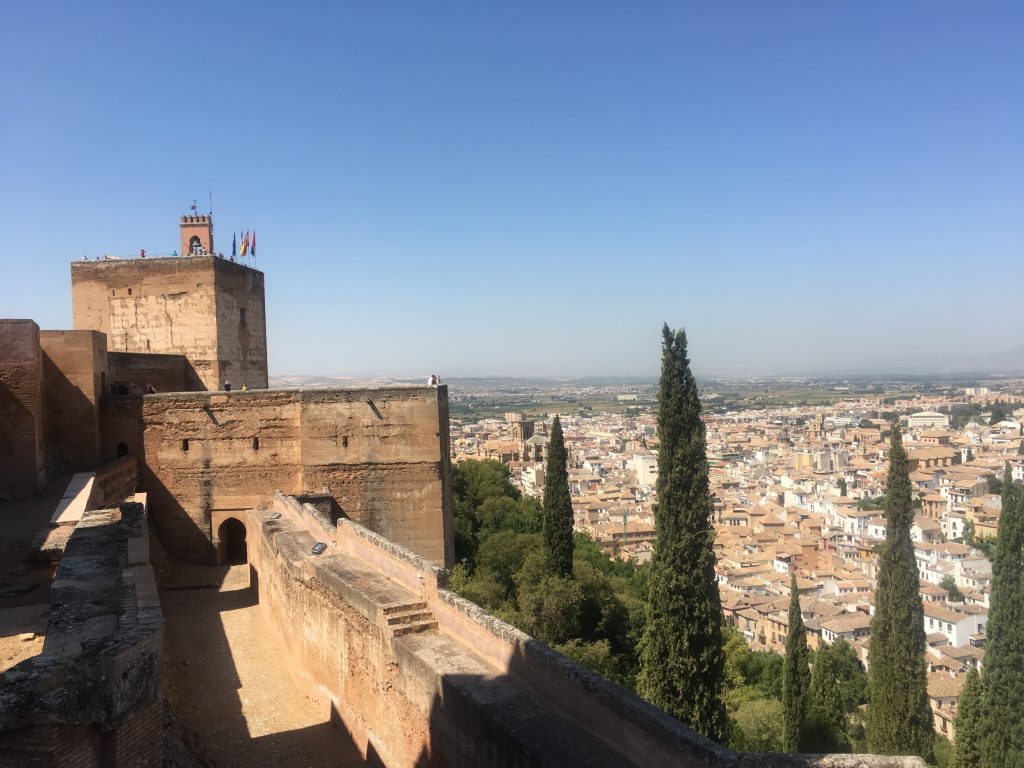
The view from the Alhambra (Photo Credit: Alice Clifford)
Also, adjacent to the town centre, you will find the Albaicín, a labyrinth of beautiful, narrow streets, lined with all white buildings, that sits on the hillside over-looking the city, providing you with, if you can handle the steep incline, incredible views.
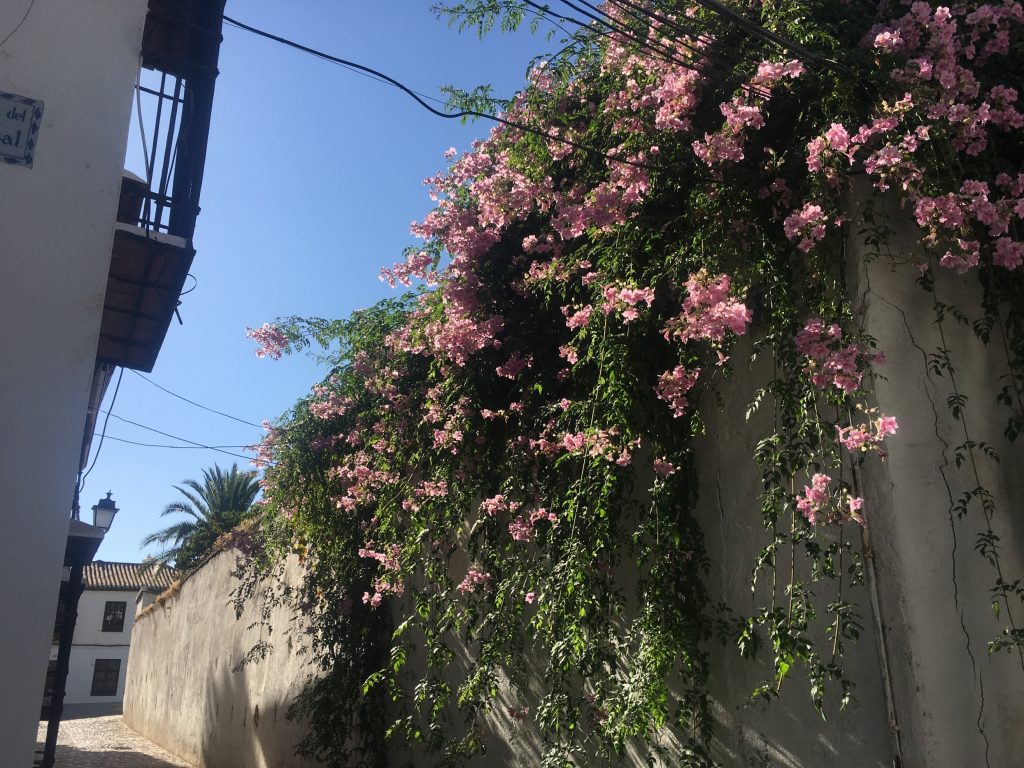
The Albaicín (Photo Credit: Alice Clifford)
Also, while Granada is full of fun and exciting places and opportunities, what makes Granada so incredible is was what surrounds it. A 40-minute bus journey could take you to either the beach or the mountains! So, if your idea of a perfect day is sunbathing on the beach, or if it is a day skiing, Granada is the place for you!
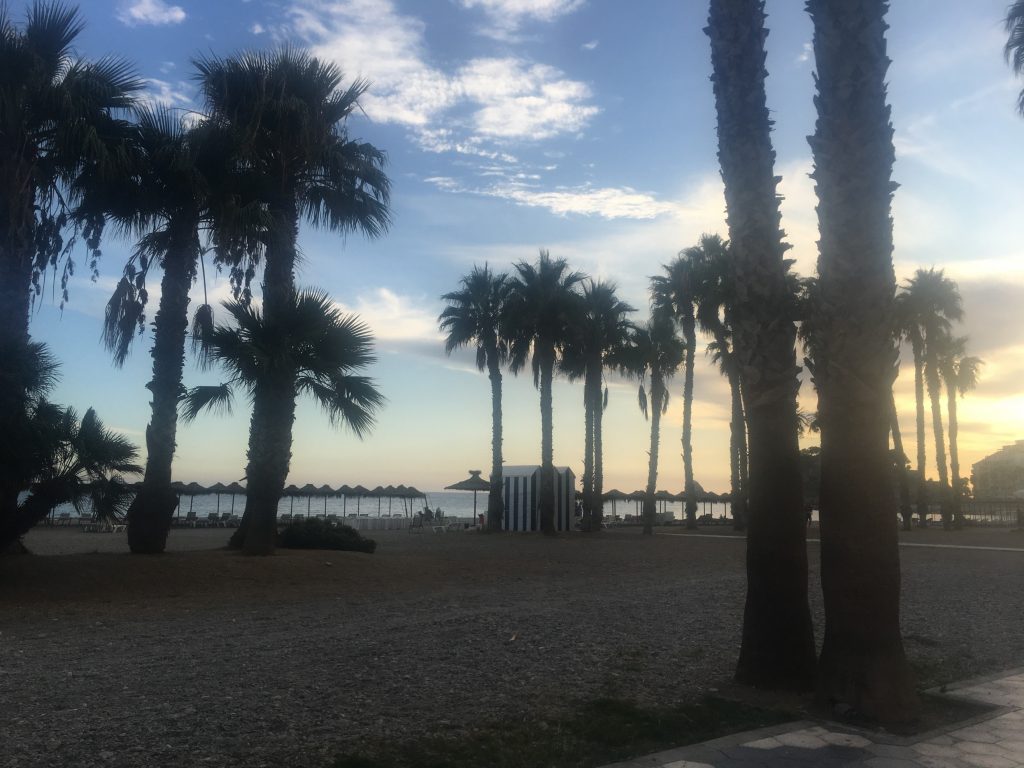
Salobre├▒a (Photo Credit: Alice Clifford) 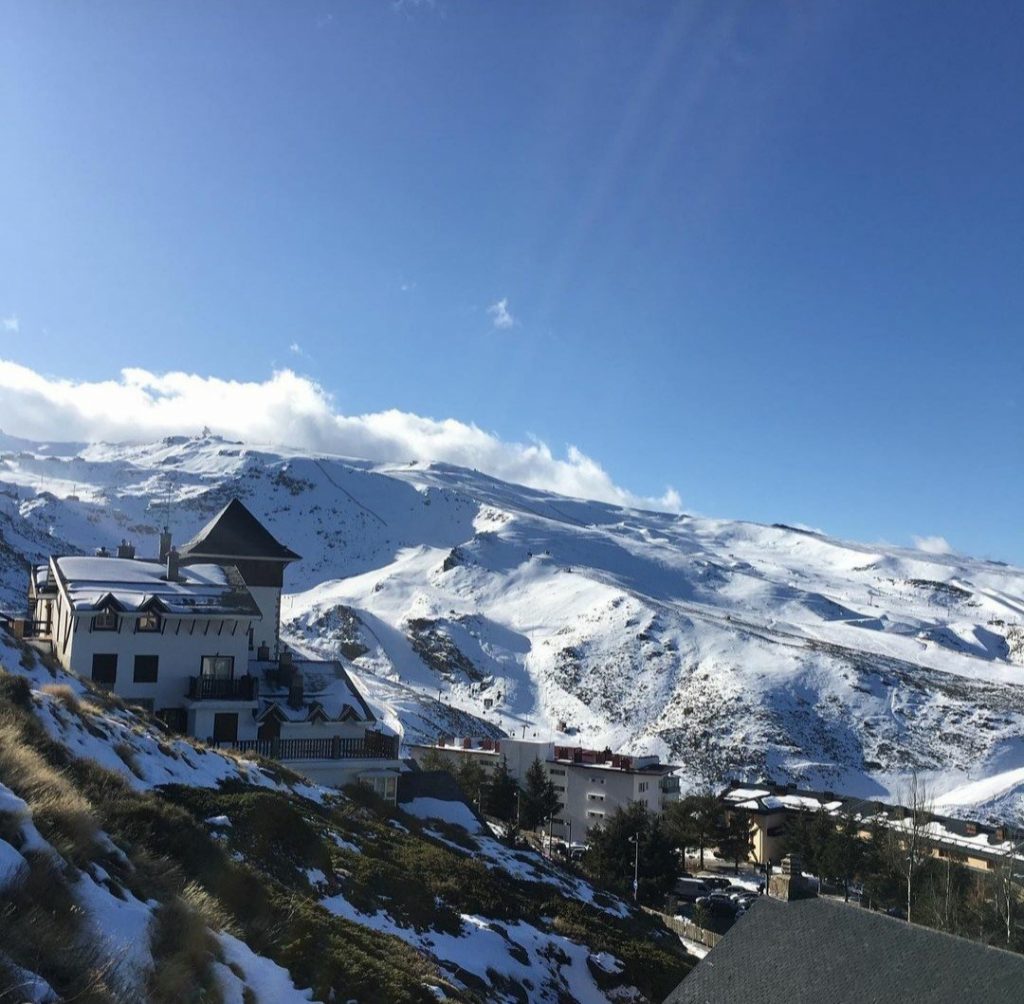
Sierra Nevada (Photo Credit: Alice Clifford)
Sadly, my year abroad didn’t just consist of bar crawling and day trips, I did have to try and squeeze in some studying every now and again. Starting university in Spain was a bit of a shock, as the 50 minute lectures at Cardiff were no more, and I was now having 2 hour lectures in Spanish, on Spanish linguistics and the Spanish golden age of literature, so to say I was out of my depth is a massive understatement! Even though during the first month or two I thought I would never feel comfortable in these lectures, soon enough I had settled into this new routine, and I had begun to enjoy the challenge of studying in a Spanish university.┬á While at the beginning I was terrified about┬á contributing in class, as in Spain 10% of your grade is solely allocated to your participation in lessons, by the end my confidence had grown, and I really enjoyed the lively discussions that took place in each lecture, as it made a change from the lectures I had gotten used to in Cardiff, where the majority of the lecture hall stayed as silent as possible and just counted down the minutes until we were free to go.
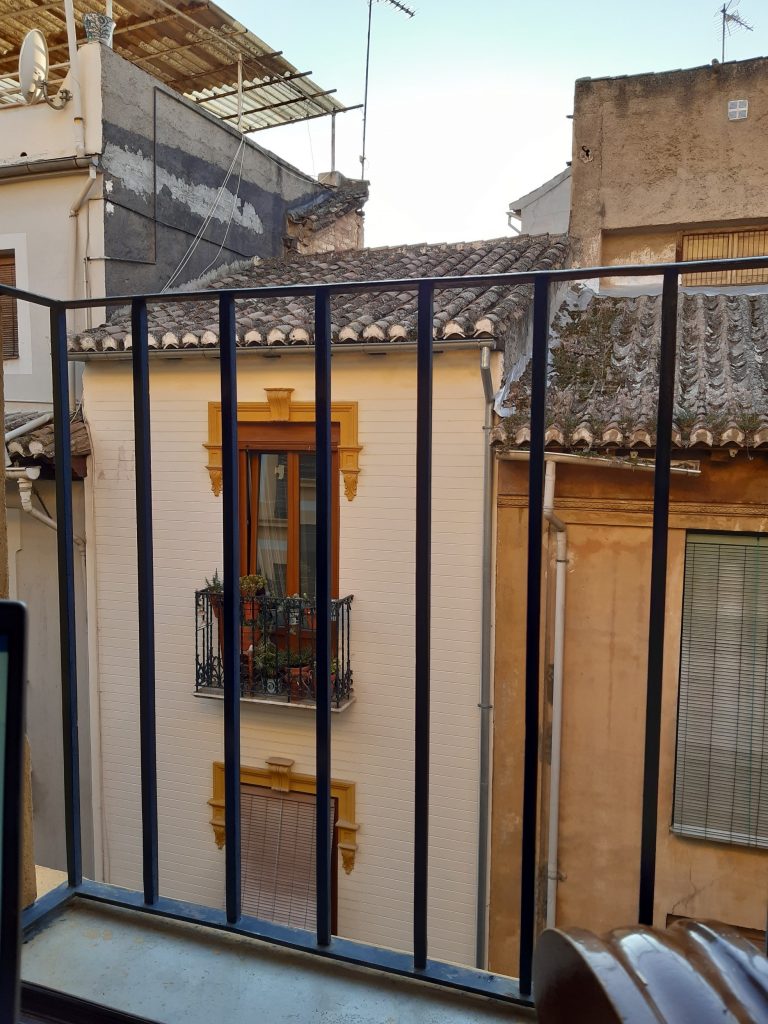
(Photo Credit: Alice Clifford) 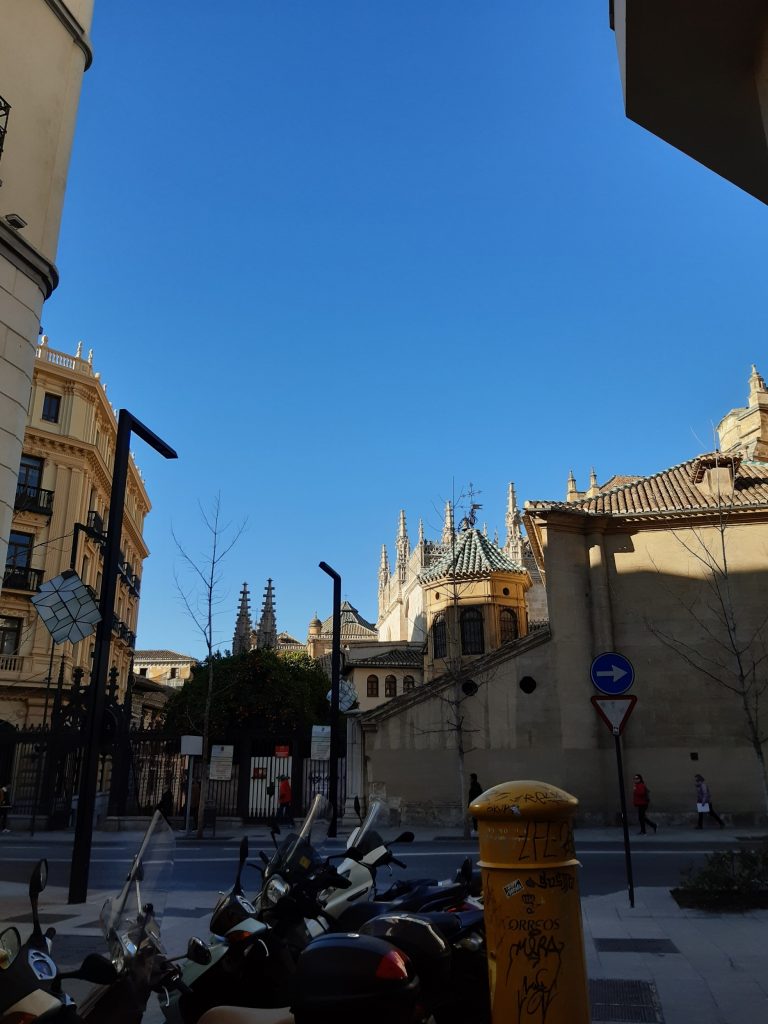
Granada Cathedral (Photo Credit: Alice Clifford
Despite my year being cut short because of the small matter of a global pandemic, I really felt that I experienced everything Granada had to offer and I took away so many memories, new language skills, a few piercings and the best tan I have ever had in my life! And while I can confidently vouch that spending a year abroad is an incredible experience, I think it is extremely important to acknowledge that like everything, there are always going to be highs and lows. I say this not to put anyone off, but to highlight how doing a year abroad can be challenging, but it is this challenge that makes the whole experience so fulfilling. Sadly, it is impossible to be having fun all the time. Believe me, I have tried! So here are some tips for anyone who is considering studying or working abroad:
- Get involved in language exchanges and Erasmus groups.
- Get in contact with people going to the same place as you, as well as people who have been before.
- Find accommodation when you get to the city, as you will then be able to find the perfect place for you.
- Ignore preconceived ideas of what your year should be like taken from social media. Your experience is unique to you and will come with positives and negatives, so throw yourself into everything and take the highs with the lows, and I promise you will have an unforgettable year.
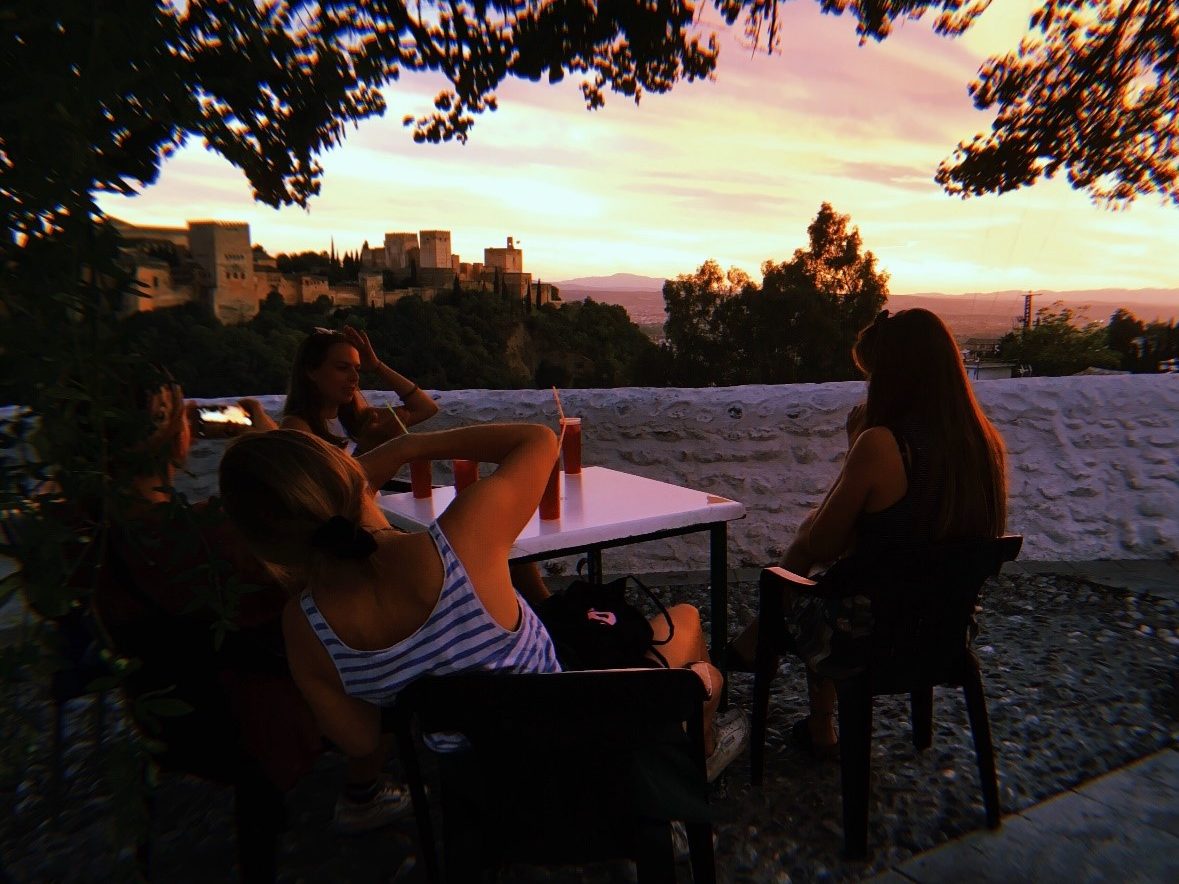
View of the Alhambra from the Albaicín (Photo Credit: Alice Clifford)


